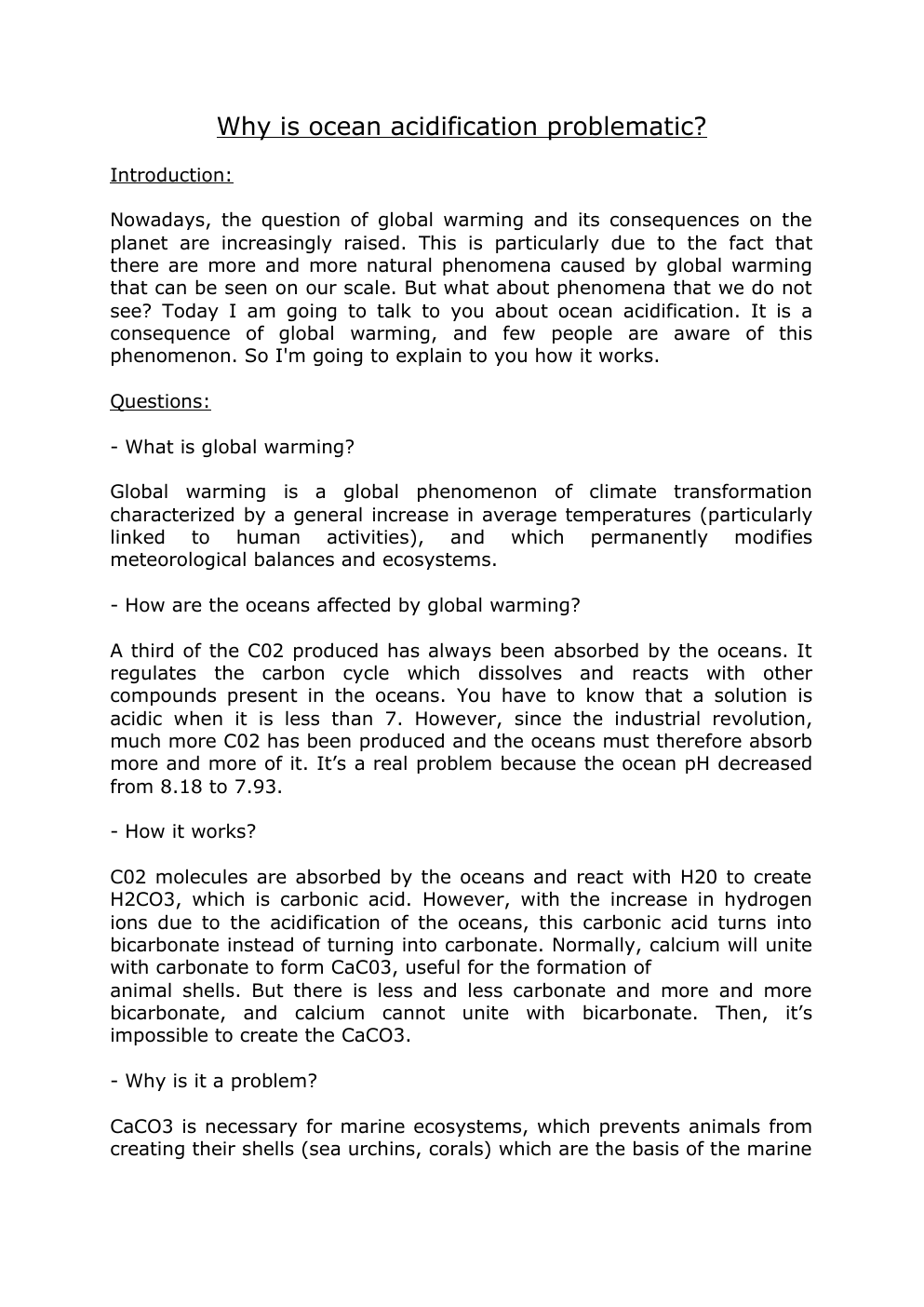Sujets épreuve d'EURO pour le BAC, Lycée (Ocean Acidification, Global Warming, Jeans): Why is ocean acidification problematic ?
Publié le 31/05/2022

Extrait du document
«
Why is ocean acidification problematic?
Introduction:
Nowadays, the question of global warming and its consequences on the
planet are increasingly raised.
This is particularly due to the fact that
there are more and more natural phenomena caused by global warming
that can be seen on our scale.
But what about phenomena that we do not
see? Today I am going to talk to you about ocean acidification.
It is a
consequence of global warming, and few people are aware of this
phenomenon.
So I'm going to explain to you how it works.
Questions:
- What is global warming?
Global warming is a global phenomenon of climate transformation
characterized by a general increase in average temperatures (particularly
linked to human activities), and which permanently modifies
meteorological balances and ecosystems.
- How are the oceans affected by global warming?
A third of the C02 produced has always been absorbed by the oceans.
It
regulates the carbon cycle which dissolves and reacts with other
compounds present in the oceans.
You have to know that a solution is
acidic when it is less than 7.
However, since the industrial revolution,
much more C02 has been produced and the oceans must therefore absorb
more and more of it.
It’s a real problem because the ocean pH decreased
from 8.18 to 7.93.
- How it works?
C02 molecules are absorbed by the oceans and react with H20 to create
H2CO3, which is carbonic acid.
However, with the increase in hydrogen
ions due to the acidification of the oceans, this carbonic acid turns into
bicarbonate instead of turning into carbonate.
Normally, calcium will unite
with carbonate to form CaC03, useful for the formation of
animal shells.
But there is less and less carbonate and more and more
bicarbonate, and calcium cannot unite with bicarbonate.
Then, it’s
impossible to create the CaCO3.
- Why is it a problem?
CaCO3 is necessary for marine ecosystems, which prevents animals from
creating their shells (sea urchins, corals) which are the basis of the marine.
»
↓↓↓ APERÇU DU DOCUMENT ↓↓↓
Liens utiles
- Arts du cirque-terminale Entraînement à la 1ère partie de l’épreuve écrite du bac
- Commentaires des Textes des sujets tombés en Amérique au bac 2021.
- Sujets entrainements bac blanc svt
- Citizens assemblies and global warming (short essay)
- Le déroulement de l'épreuve de l'oral de français au bac


